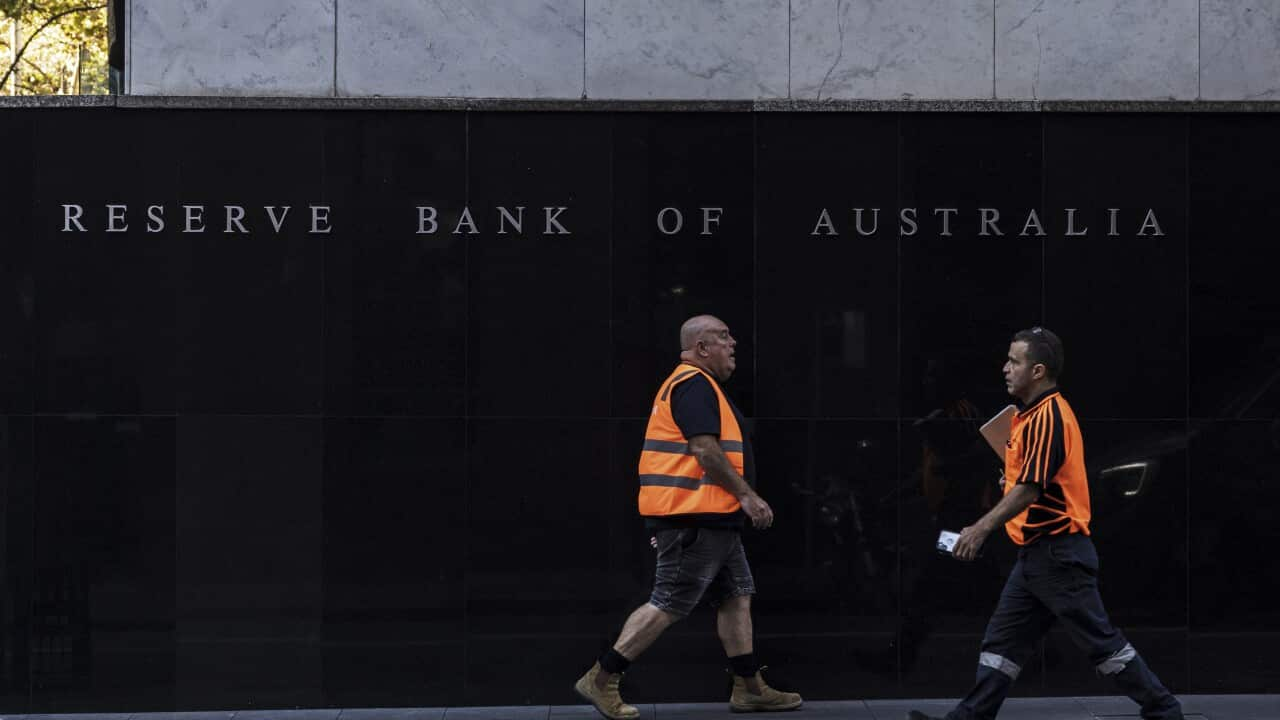Key Points
- The Reserve Bank of Australia has opted to keep cash rates on hold at 4.35 per cent.
- It said while there are positive signs inflation is slowing, underlying inflation remains too high.
- The bank says it's seeking to sustainably return inflation to its target range, but the outlook remains unclear.
The Reserve Bank of Australia (RBA) has left interest rates on hold at 4.35 per cent.
The cash rate has remained on hold since November 2023.
It's bad news for Australian homeowners looking for interest rate relief before Christmas.
For the past few years, the RBA has been stressing inflation must be within a 2 to 3 per cent range for it to cut rates.
the first time in three-and-a-half years it has been below 3 per cent.
The 'big four' banks have speculated the first rate cut could land in a few months, with economists predicting the RBA could cut rates by 0.25 of a percentage point in February 2025.
But the markets don't think it will happen until April 2025.

Australia's interest rate has remained on hold since November 2023. Source: SBS News
"The third-quarter consumer price index (CPI) confirmed inflation is easing, but not enough to shift the RBA's policy stance," Creagh said. "Although headline inflation is within the 2-3 per cent target, underlying price pressures and a resilient labour market make an interest rate cut this year unlikely."
"Slowing employment and inflation may prompt rate cuts from February 2025, but the resilient labour market and stickier components of inflation could delay this timeline."
Here's what's influenced the RBA's decision.
Underlying inflation remains too high
The RBA said while inflation has fallen substantially since the peak in 2022, this was expected due to "declines in fuel and electricity prices in the September quarter".
"Part of this decline," it wrote in a statement following Tuesday's decision, referring to government energy rebates and adding underlying inflation was 3.5 per cent over the year.
"This was as forecast but is still some way from the 2.5 per cent midpoint of the inflation target."
Underlying inflation is a measure of the general increase in prices over time without temporary price spikes. It's considered to be a truer indication of inflation.
The outlook remains highly uncertain
The RBA has said while it's seeking to substantially return inflation to the target range, the outlook remains unclear.
"While headline inflation has declined substantially and will remain lower for a time, underlying inflation is more indicative of inflation momentum, and it remains too high," it wrote.
The RBA board also said sustainably returning inflation to target with a "reasonable" timeframe was its "highest priority".
"To date, longer-term inflation expectations have been consistent with the inflation target and it is important that this remains the case."
RBA won't confirm fate of future RBA cuts or hikes
Reserve Bank governor Michele Bullock won't reveal whether Australians should expect rate cuts or rises next year and said she won't be "drawn into another forward guidance" after previously saying Australians shouldn't expect a rate cut before Christmas.
"What I would say is that I think at the moment, we’ve got the right settings," Bullock said. "We think monetary policy is restrictive, and that’s showing up in a number of parts of demand, including private sector demand."
"We have made good progress. But as we’ve seen throughout the year, this last part of the job of getting inflation down is not easy or straightforward," she continued.
"We believe that settings are restrictive, and we need to keep rates restrictive for the time being."
Bullock also said the board needed to be "confident" inflation is moving sustainably toward the target.
"We’re watching the data closely and we’re not ruling anything in or out."
Treasurer Jim Chalmers praises the "soft landing"
Treasurer Jim Chalmers has commented on the hold, saying it is "not a surprise".
"What this means is that rates haven't gone up since last Melbourne Cup day," he said.
Chalmers said that the hold reflected the impact of rate rises in the system: "Australians are already doing it tough enough when it comes to dealing with these higher interest rates."
"Secondly, it reflects the progress we are making together in the fight against inflation."
"We are confident but not complacent about a soft landing in our economy."











